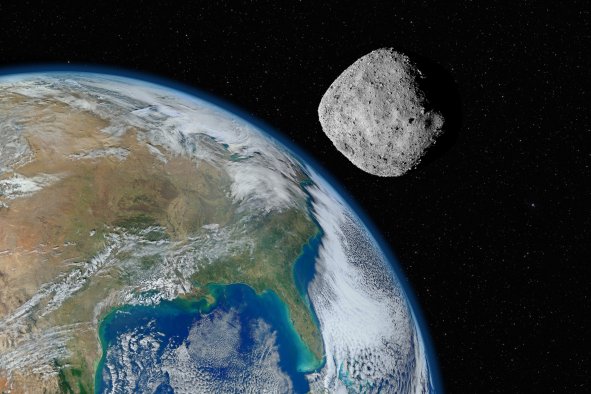Scientists studying Thwaites Glacier, ominously dubbed the "Doomsday Glacier," have unveiled a rapidly evolving and complex environment that could lead to dramatic sea-level rise in the centuries ahead. The glacier, located in West Antarctica, has become a focal point of global concern due to its potential to significantly impact coastal communities around the world.
Since 2018, the International Thwaites Glacier Collaboration (ITGC), a joint research initiative between the U.K. and the U.S., has been closely monitoring this immense glacier, which is roughly the size of Florida. Its latest findings reveal alarming trends in ice loss and indicate a heightened risk of collapse.
"Thwaites has been retreating for more than 80 years, accelerating considerably over the past 30 years, and our findings indicate it is set to retreat further and faster," Rob Larter, science coordinator of ITGC and a marine geophysicist at the British Antarctic Survey (BAS), said in a statement.
If Thwaites collapses, the consequences would be catastrophic. Stretching more than 70 miles wide and over 6,500 feet thick, its collapse could expose millions of people in vulnerable low-lying areas—like Bangladesh and the Pacific Islands—to rising sea levels. Major cities, including New York and London, also face increased risk, according to the BAS.
"Thwaites is almost like the jugular of Antarctica," Kiya Riverman, a glaciologist at the University of Portland who is involved in the ITGC, told Newsweek. "It's a point at which damage is incredibly impactful to us."
Riverman explained that some of the collaboration's findings point towards the glacier being more stable than expected over the next 30 to 40 years, as Thwaites continues to cling onto a ridge for the near term.
However, she noted: "We've already crossed a tipping point with Thwaites," emphasizing that even if conditions stabilize over the next couple of decades, it won't prevent the glacier's inevitable, long-term melting.
Reducing emissions as fast as possible is still important, Riverman said, as it will slow down the process, giving coastal communities more time to mitigate the effects of rising seas.
By the 23rd century, Thwaites and much of the West Antarctic Ice Sheet could be completely lost, the ITGC said. Thwaites alone holds enough ice to raise global sea levels by more than two feet. If the entire ice sheet it protects also collapses, sea levels could rise by over 10 feet—an outcome that would drastically reshape global coastlines.
Currently, sea levels are rising by 0.13 inches per year, according to NASA. The flow of ice from Thwaites and neighboring glaciers into the ocean has more than doubled since 1990, and this region now contributes to 8 percent of global sea-level rise.
To study Thwaites, scientists have employed cutting-edge technologies, including underwater robots, advanced survey techniques and new modeling approaches. These tools are important to understanding the glacier's behavior and making reliable predictions about its future. Yet, despite these advances, much remains uncertain.
"The latest computer models predict continuing ice loss that will accelerate through the 22nd century and could lead to a widespread collapse of the West Antarctic Ice Sheet in the 23rd," Ted Scambos, U.S. science coordinator of the ITGC and glaciologist at the University of Colorado, said in a statement.
While immediate and sustained climate action could help mitigate some of the damage, Scambos cautioned that the effects of such interventions would take time to take hold—especially in slowing the influx of warm, deep ocean waters, which are the main driver of the glacier's retreat.
Riverman echoed these concerns, adding: "I'm sitting on my couch looking at the park across the street, and it feels like this is all far away from here. But the impact of Thwaites on all of us is something we're going to feel in the coming decades and generations.
"The sooner we prioritize and try to understand these changes, the more we're going to set up future generations for success in mitigating the effects."
Do you have a tip on a science story that Newsweek should be covering? Do you have a question about sea level rise? Let us know via science@newsweek.com.
Disclaimer: The copyright of this article belongs to the original author. Reposting this article is solely for the purpose of information dissemination and does not constitute any investment advice. If there is any infringement, please contact us immediately. We will make corrections or deletions as necessary. Thank you.



